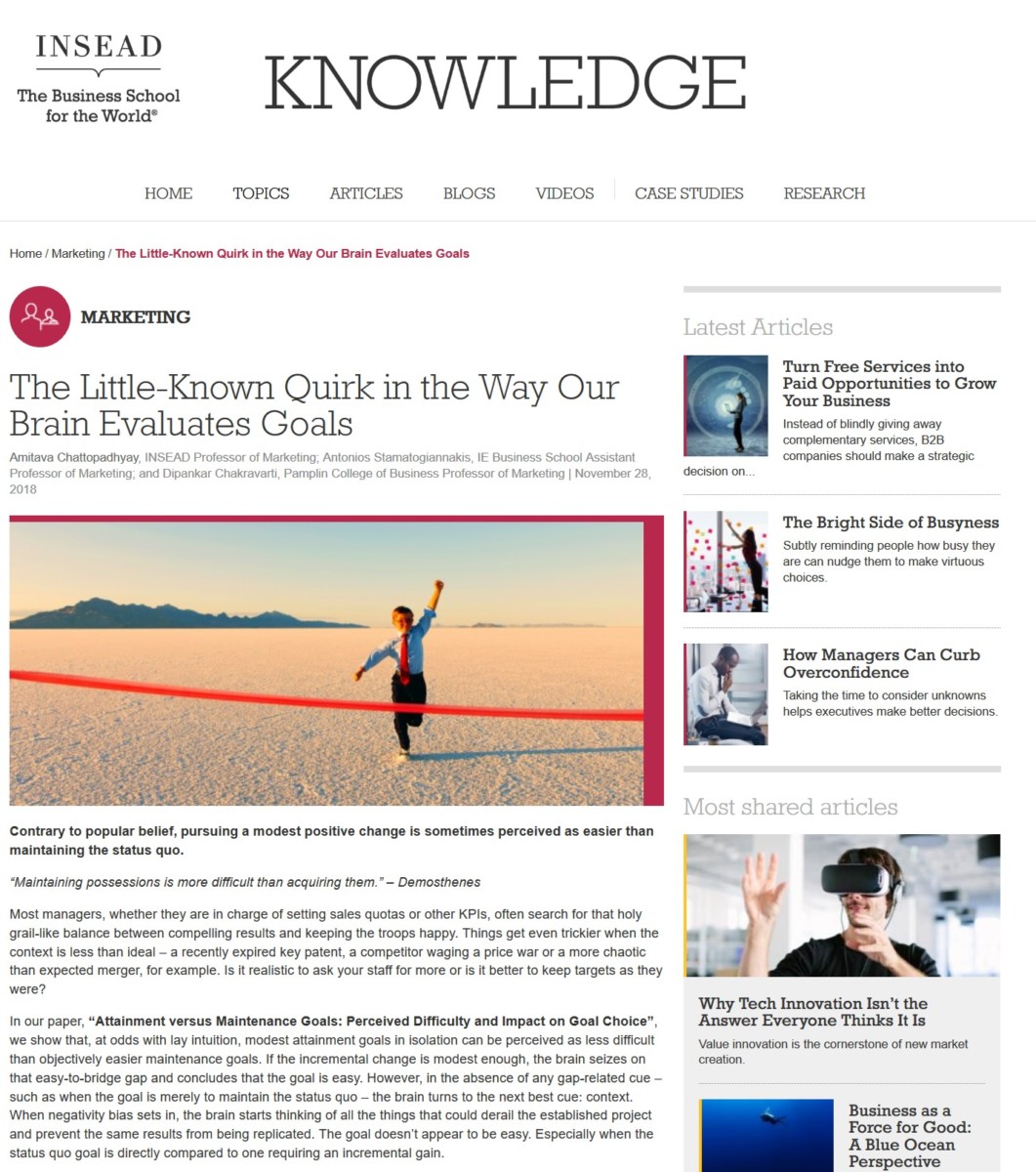The Little-Known Quirk in the Way Our Brain Evaluates Goals

“Maintaining possessions is more difficult than acquiring them.” – Demosthenes
Most managers, whether they are in charge of setting sales quotas or other KPIs, often search for that holy grail-like balance between compelling results and keeping the troops happy. Things get even trickier when the context is less than ideal – a recently expired key patent, a competitor waging a price war or a more chaotic than expected merger, for example. Is it realistic to ask your staff for more or is it better to keep targets as they were?
In our paper, “Attainment versus Maintenance Goals: Perceived Difficulty and Impact on Goal Choice”, we show that, at odds with lay intuition, modest attainment goals in isolation can be perceived as less difficult than objectively easier maintenance goals. If the incremental change is modest enough, the brain seizes on that easy-to-bridge gap and concludes that the goal is easy. However, in the absence of any gap-related cue – such as when the goal is merely to maintain the status quo – the brain turns to the next best cue: context. When negativity bias sets in, the brain starts thinking of all the things that could derail the established project and prevent the same results from being replicated. The goal doesn’t appear to be easy. Especially when the status quo goal is directly compared to one requiring an incremental gain.

Read On

